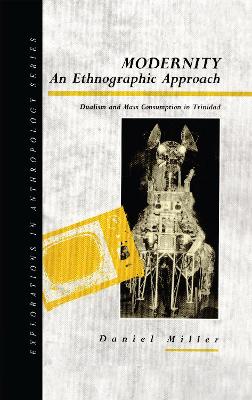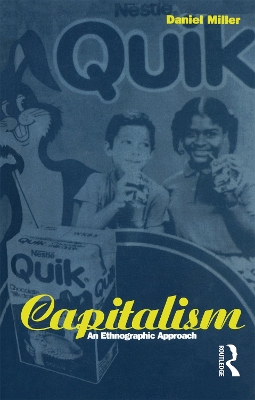Explorations in Anthropology
2 total works
From cultural studies, sociology, media studies, gender studies and elsewhere there have been a spate of books recently which have attempted to characterize the state of modernity. Many of these have also argued that what is required is an ethnographic work to determine how far these supposed trends actually apply to a given population. This book explicitly accepts this challenge and, in so doing, demonstrates the potential of modern anthropology studies. It starts by summarizing some debates on modernity and then argues that the Caribbean island of Trinidad is particularly apt for such a study given the origins of its population in slavery and indentured labour, both forms of extreme social rupture. The particular focus of this book is on mass consumption and the way goods and imported images such as soap opera have been used to express and develop a number of key contradictions of modernity. It will be of interest to anthropologists looking for a new potential for the discipline, as well as students in other fields who will be interested in the new contribution of anthropology to their debates.
This provocative book challenges many of our ingrained assumptions about the direction of contemporary capitalism and offers fresh perspectives that will inform the development of a new and relevant political economy for our times. The complex and often contradictory world within which modern commodities are produced, sold and consumed is set within the larger context of transnational business and economic developments. The importance of factors such as profitability and globalization is highlighted, and a sophisticated analysis of the contradictions and ironies of the world of modern commodities emerges. Trinidad provides an ideal setting for this study, given its recent oil boom and recession and the subsequent experience of both wealth and poverty.

